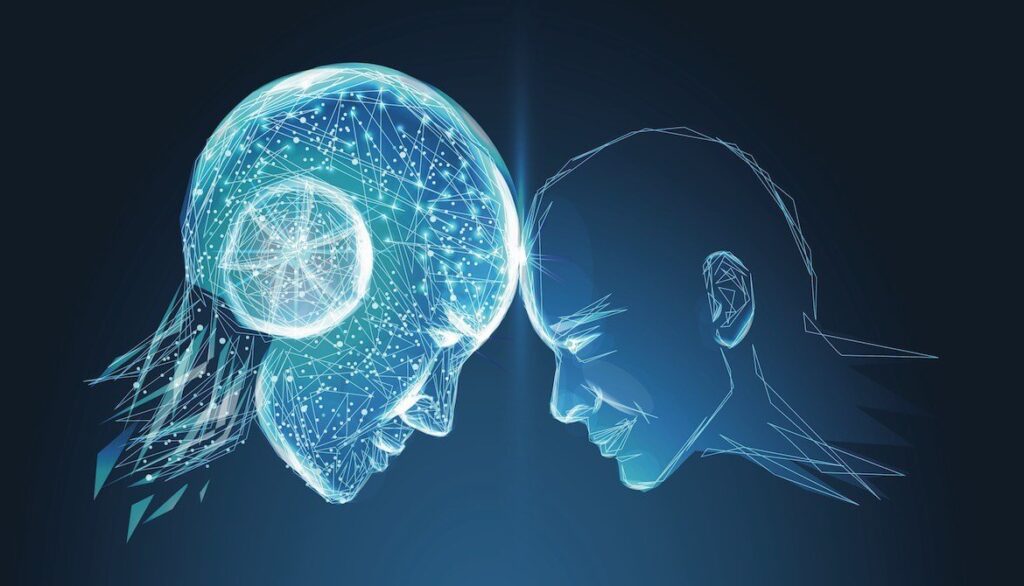Artificial intelligence (AI) isn’t just for robots in movies anymore. It’s quietly seeped into our everyday lives, making things smoother, smarter, and sometimes even a little spooky. But how exactly is AI impacting us? Let’s dive into the fascinating world of AI and see how it’s transforming our daily routines.
Your AI Assistant: From Recommendations to Reminders

Think you don’t interact with AI? Think again! That helpful voice suggesting Netflix shows you’ll love? AI. The spam filter keeping your inbox clean? AI. Even the autocorrect on your phone – yep, AI. These are all examples of machine learning, a type of AI that learns from data to improve its performance. Machine learning algorithms power virtual assistants like Siri and Alexa, allowing them to understand our natural language and respond with increasing accuracy. These AI assistants can schedule appointments, manage to-do lists, and even control smart home devices, making our lives more convenient and efficient. (https://www.linkedin.com/pulse/leveraging-ai-personal-productivity-smart-assistants-more)
AI in Your Commute and Beyond

Traffic jams got you down? AI-powered navigation apps like Waze analyze real-time data to suggest the fastest routes, learning from traffic patterns and accidents to constantly improve their suggestions. And the future of transportation is even more AI-driven, with self-driving cars on the horizon. These autonomous vehicles use a combination of cameras, radar, and lidar sensors to perceive their surroundings and navigate roads safely. While fully self-driving cars are still under development, AI is already assisting drivers with features like adaptive cruise control and lane departure warnings.(https://www.linkedin.com/pulse/ai-gps-navigation-systems-strivemindz-8rbdc)
AI Keeps You Safe and Secure

Security systems are getting smarter with AI. Facial recognition technology can identify authorized personnel entering buildings, and security cameras can detect unusual activity, sending alerts to homeowners or security personnel. AI is even used in fraud detection, analyzing your spending habits to identify suspicious transactions and protect your hard-earned money from online scams. For example, if you try to make a large purchase from an unfamiliar location, your bank’s AI system might flag the transaction for verification, helping to prevent fraud.(https://www.lystloc.com/blog/how-does-face-recognition-door-access-control-system-work/)
AI in the Workplace: Partner, Not Replacement

While some fear robots taking over our jobs, AI is actually transforming the workplace for the better. Repetitive tasks like data entry and scheduling are being automated, freeing up human employees to focus on creative problem-solving and strategic thinking. AI can also analyze vast amounts of data to provide valuable insights, helping businesses make better decisions about everything from marketing campaigns to product development. For example, an AI system can analyze customer reviews to identify product weaknesses or predict future sales trends.(https://sproutsocial.com/insights/ai-insights/)
The Future of AI: A World of Possibilities

The potential applications of AI are endless. Imagine AI-powered tutors personalizing education for every child, tailoring their learning experience to their strengths and weaknesses. AI assistants could help manage chronic health conditions, monitoring vital signs and reminding patients to take medication. AI is even being explored in fields like medicine and disaster relief, with the potential to analyze medical scans for early signs of disease or optimize emergency response routes during natural disasters.(https://www.linkedin.com/pulse/future-learning-personalized-ai-tutors-every-student-diamandis-umnze)
The Rise of AI: Not Without Challenges

Of course, with great power comes great responsibility (cue the Spiderman quote). Bias in AI algorithms, where the data used to train the AI reflects societal prejudices, is an important issue to consider. A biased AI algorithm could perpetuate discrimination in areas like loan approvals or job applications. The potential for job displacement due to automation is another concern. As AI takes over more and more tasks, it’s crucial to ensure that workers have the opportunity to develop new skills and transition to new roles. AI is continuing to evolve, we need to ensure it’s developed and used responsibly. Regulations and ethical frameworks need to be in place to mitigate bias and ensure AI is used for good.(https://www.brookings.edu/articles/reducing-bias-in-ai-based-financial-services/)


